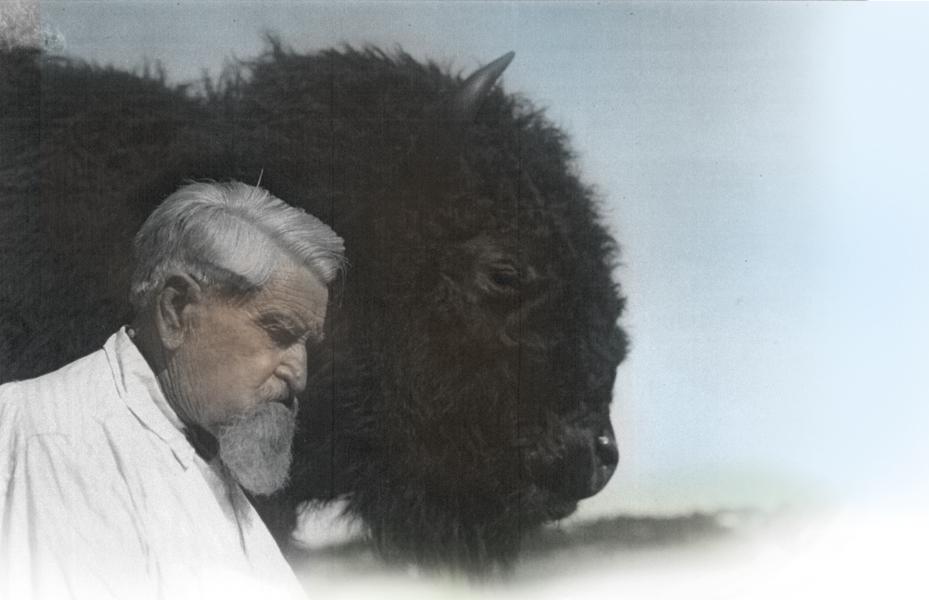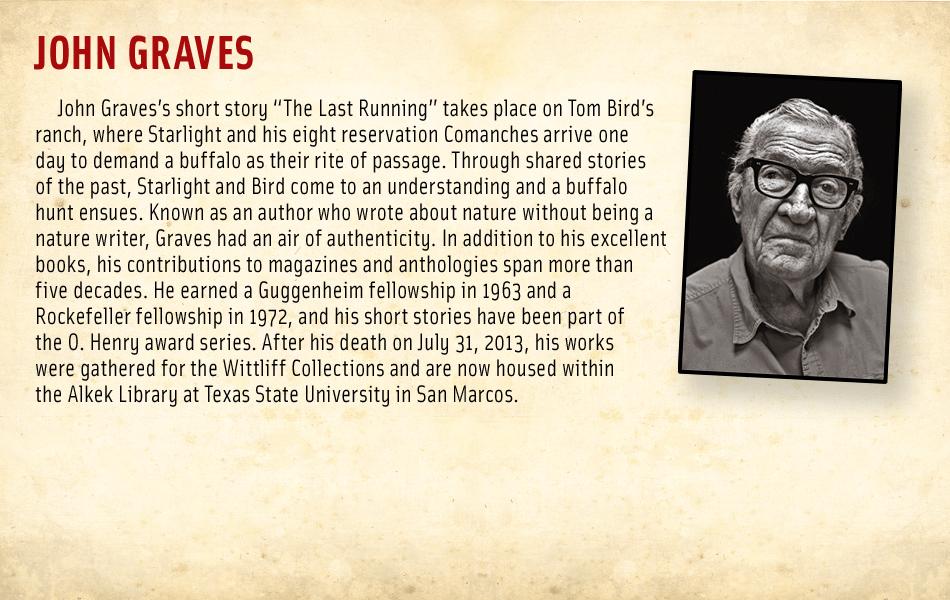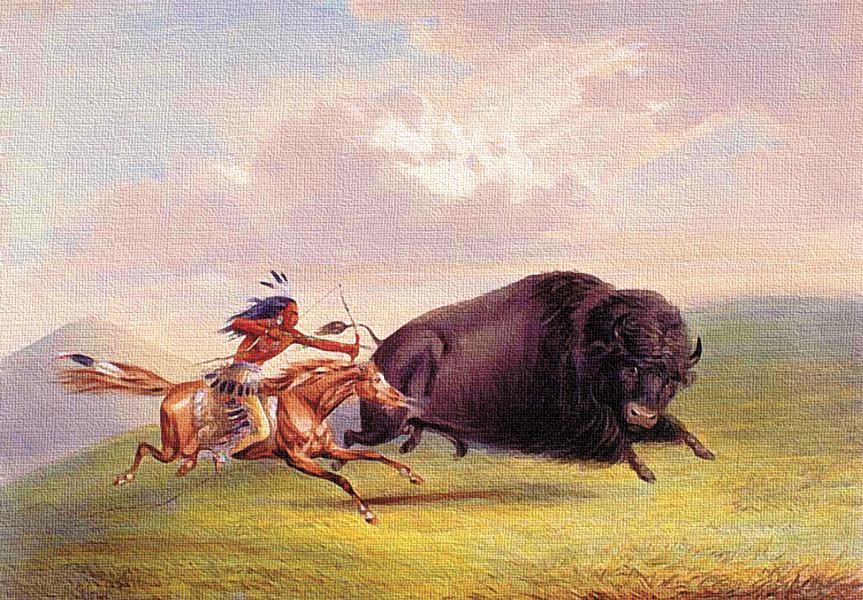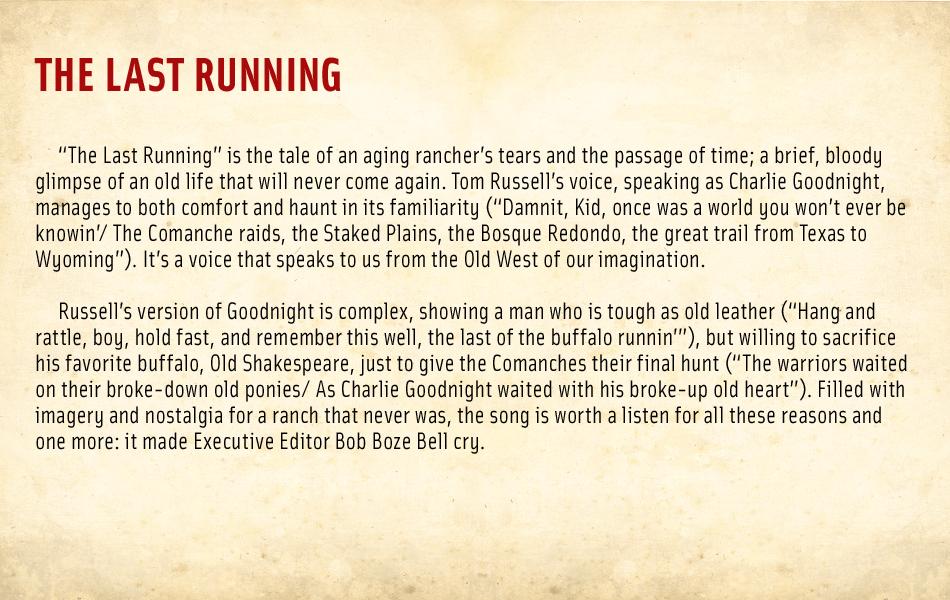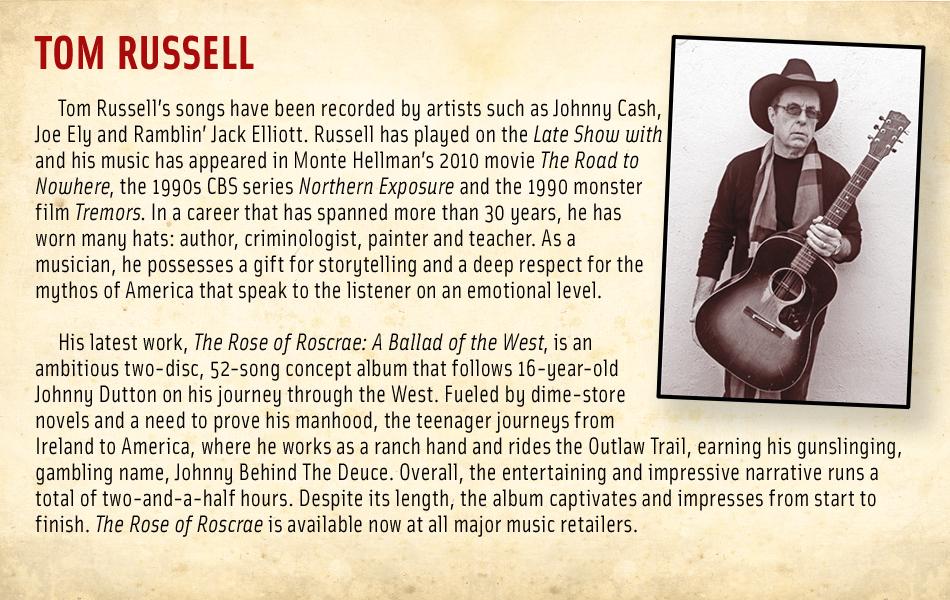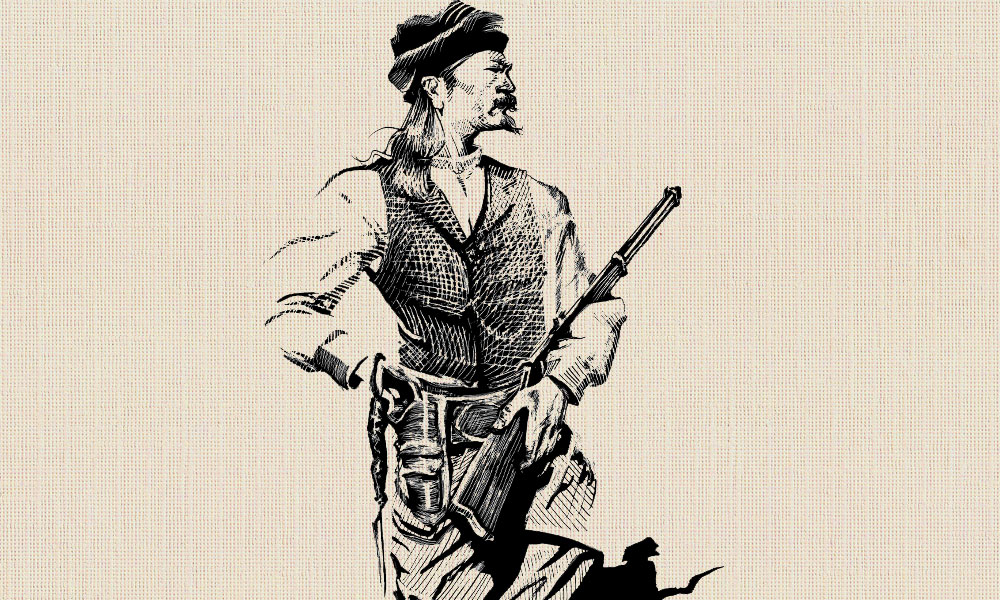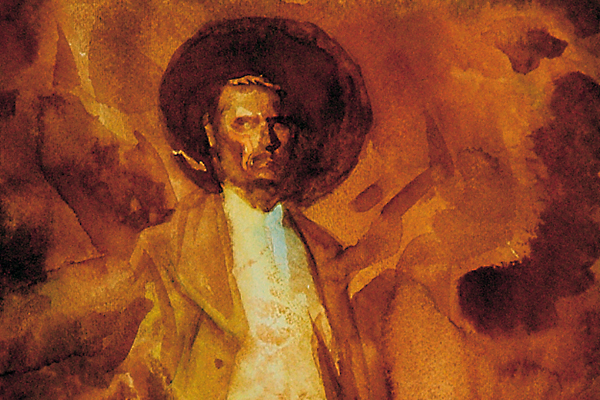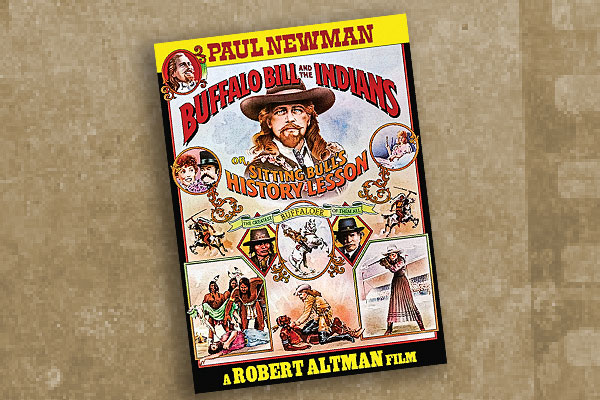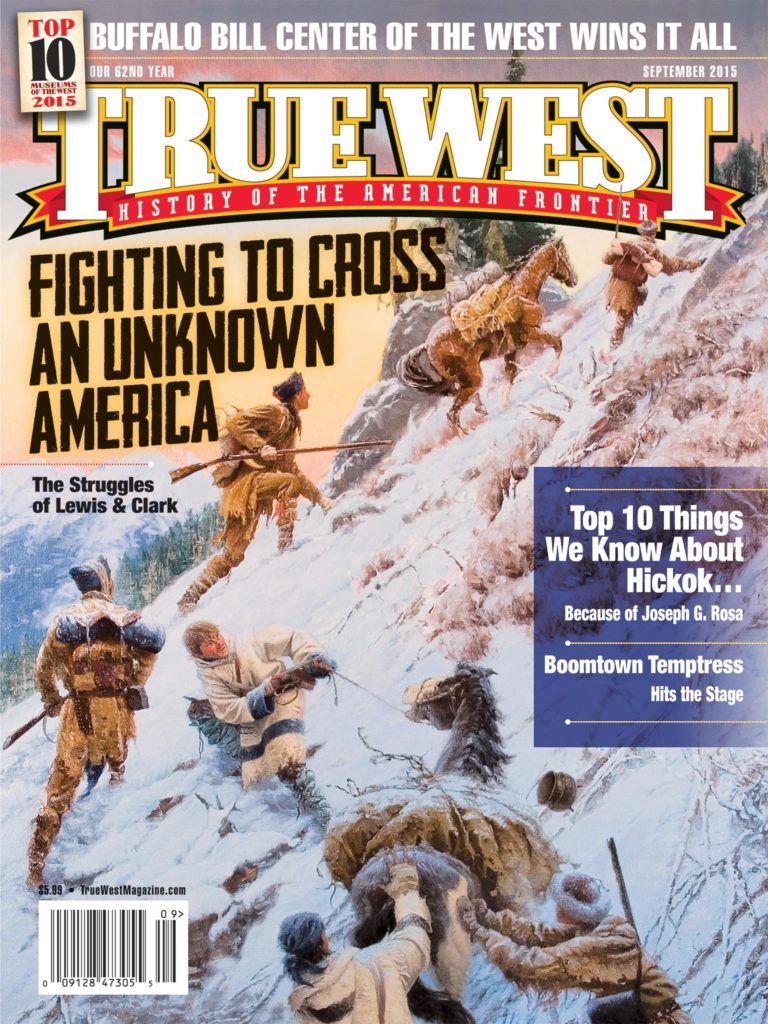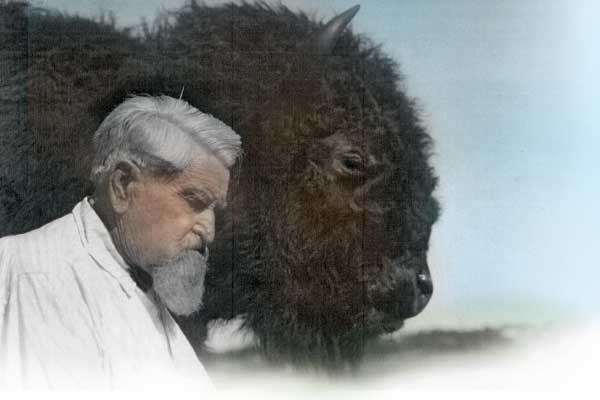 “I have met a lot of good men, several fine gentlemen, hordes of cunning climbers, plenty of loud-braying asses and plenty of dumb oxen, but I haven’t lived long enough or traveled far enough to meet more than two or three men I’d call great. That is a word I will not bandy around. To me Charles Goodnight was great-natured.” – J. Frank Dobie
“I have met a lot of good men, several fine gentlemen, hordes of cunning climbers, plenty of loud-braying asses and plenty of dumb oxen, but I haven’t lived long enough or traveled far enough to meet more than two or three men I’d call great. That is a word I will not bandy around. To me Charles Goodnight was great-natured.” – J. Frank Dobie
Whether you know of Charles Goodnight through Larry McMurtry’s Lonesome Dove novels or the annual Goodnight Chuckwagon Cook-off (Goodnight invented the first chuckwagon), he left an indelible mark on the history of the West. Goodnight lived 93 years, was a renowned cowman and, along with Oliver Loving, established the Goodnight-Loving Trail in 1866, which eventually spanned from Texas to Wyoming. He pioneered the “beefalo,” and he is thought to have preserved a herd of Plains buffalo that still exists today in Caprock Canyons State Park.
Goodnight’s astounding life inspired Tom Russell to include the famous rancher in “The Last Running,” one of the 52 songs on his two-disc album, The Rose of Roscrae. The excellent writing of John Graves’s short story “The Last Running” served as a starting point:
“A friend of mine, writer and falconer Steve Bodio, told me to read one of Graves’s only pieces of short fiction ‘The Last Running.’ I was bowled over,” Russell says. “Supposedly it’s based on a real incident where some old reservation Comanches ask Goodnight for a buffalo to kill in the old ritual way.”
Russell’s reverence for Goodnight, the writing of Graves and the Old West is clear from the first note to the last. At times tragic and awe-inspiring, the song gives a glimpse of Goodnight’s vanishing West and how, despite the changing frontier, great-natured Charles Goodnight might have been.
The Last Running
“The Last Running” is the tale of an aging rancher’s tears and the passage of time; a brief, bloody glimpse of an old life that will never come again. Tom Russell’s voice, speaking as Charlie Goodnight, manages to both comfort and haunt in its familiarity (“Damnit, Kid, once was a world you won’t ever be knowin’/ The Comanche raids, the Staked Plains, the Bosque Redondo, the great trail from Texas to Wyoming”). It’s a voice that speaks to us from the Old West of our imagination.
Russell’s version of Goodnight is complex, showing a man who is tough as old leather (“Hang and rattle, boy, hold fast, and remember this well, the last of the buffalo runnin’”), but willing to sacrifice his favorite buffalo, Old Shakespeare, just to give the Comanches their final hunt (“The warriors waited on their broke-down old ponies/ As Charlie Goodnight waited with his broke-up old heart”). Filled with imagery and nostalgia for a ranch that never was, the song is worth a listen for all these reasons and one more: it made Executive Editor Bob Boze Bell cry.
Tom Russell
Tom Russell’s songs have been recorded by artists such as Johnny Cash, Joe Ely and Ramblin’ Jack Elliott. Russell has played on the Late Show with David Letterman five times, and his music has appeared in Monte Hellman’s 2010 movie The Road to Nowhere, the 1990s CBS series Northern Exposure and the 1990 monster film Tremors. In a career that has spanned more than 30 years, he has worn many hats: author, criminologist, painter and teacher. As a musician, he possesses a gift for storytelling and a deep respect for the mythos of America that speak to the listener on an emotional level.
His latest work, The Rose of Roscrae: A Ballad of the West, is an ambitious two-disc, 52-song concept album that follows 16-year-old Johnny Dutton on his journey through the West. Fueled by dime-store novels and a need to prove his manhood, the teenager journeys from Ireland to America, where he works as a ranch hand and rides the Outlaw Trail, earning his gunslinging, gambling name, Johnny Behind The Deuce. Overall, the entertaining and impressive narrative runs a total of two-and-a-half hours. Despite its length, the album captivates and impresses from start to finish. The Rose of Roscrae is available now at all major music retailers.
John Graves
John Graves’s short story “The Last Running” takes place on Tom Bird’s ranch, where Starlight and his eight reservation Comanches arrive one day to demand a buffalo as their rite of passage. Through shared stories of the past, Starlight and Bird come to an understanding and a buffalo hunt ensues. Known as an author who wrote about nature without being a nature writer, Graves had an air of authenticity. In addition to his excellent books, his contributions to magazines and anthologies span more than five decades. He earned a Guggenheim fellowship in 1963 and a Rockefeller fellowship in 1972, and his short stories have been part of the O. Henry award series. After his death on July 31, 2013, his works were gathered for the Wittliff Collections and are now housed within the Alkek Library at Texas State University in San Marcos.
Old Charlie Goodnight stood out on his porch on an isolated West-Texas ranch
They were chattering in broken Spanish/Comanche and Charlie laughed at their Indian cunning
They wanted a buffalo from Charlie’s private herd, they yearned for one last buffalo running
Old Iron Head, the leader, warbled-on about a time when the land and buffalo was everyone’s—meant to be shared
Before the white man, the Iron Horse, and the barbed wire—so the Comanches figured a gifted buffalo was fair
Charlie kept fourteen head on a far hill, so he could gaze at ’em—as he drank whiskey in the evenings
Charlie’s favorite was old Shakespeare, a horse killing bull, but the beast had a spirit Charlie truly believed in
Now back in the time of blood and confusion, the Comanches were the fiercest of mounted tribes
But smallpox, syphilis, and whiskey had scoured their numbers and eroded their pride
Now in beat-up old Stetsons and calico shirts they smoked and waited in the shade of a Mesquite stand
Finally Charlie relented and yelled, “All right, ye red bastards—take one for the old days and civilization be damned!”
Charlie turned to me and declared: “Dammit Kid, once was a world you won’t ever be knowin’
The Comanche raids, the Staked Plains, the Bosque Redondo, the great trail from Texas up to Wyoming
The wild buffalo on a thousand hills, or a campfire song—one cowboy and his guitar a strummin’
Hang and rattle, boy, hold fast, and remember this well, the last of the buffalo runnin’s”
Now Charlie gave Iron Head his choice from the herd, and of course the chief picked Charlie’s favorite, Shakespeare
And as Charlie sat on the porch awaiting the run, we knew he was fighting back tears
Our vaquero, Juan, tricked the bull into a chute, where old Shakespeare ’bout tore the rails apart
The warriors waited on broke down old ponies as Charlie waited with his broke-up old heart
The Juan turned the bull loose and it was all Comanche Blood Memory, wild war whoops and arrows and shrieks
Old Shakespeare fought like the king of the bison, one you could kill but never defeat.
The Indians cut up the meat and sang a buffalo song, a deep guttural sound— their ancient prayin’
And Iron Head rode up and saluted Charlie Goodnight as the Comanche rode off ’cross the West Texas plain
And me I was wonderin’ did I see what I saw? The wild shrieks and the death of that bull?
It’s stuck with me more than most things I’ve witnessed and all that history I ever learned in school
Yes, I’s just a kid twelve years of age and the frontier was soon dyin’ then done
blood memory of that last great buffalo run.
* * *
Now I lie in the heart of the fat, black soil, Like the seed of the prairie-thistle;
It has washed my bones with honey and oil And picked them clean as a whistle.
And my youth returns, like the rains of Spring, And my sons, like the wild-geese flying;
And I lie and hear the meadowlarks sing
And have much content in my dying.
Go play with the towns you have built of blocks, The towns where you would have bound me!
I sleep in my earth like a tired fox,
And my buffalo have found me.
—Tom Russell
Photo Gallery
“I have met a lot of good men, several fine gentlemen, hordes of cunning climbers, plenty of loud-braying asses and plenty of dumb oxen, but I haven’t lived long enough or traveled far enough to meet more than two or three men I’d call great. That is a word I will not bandy around. To me Charles Goodnight was great-natured.” – J. Frank Dobie


